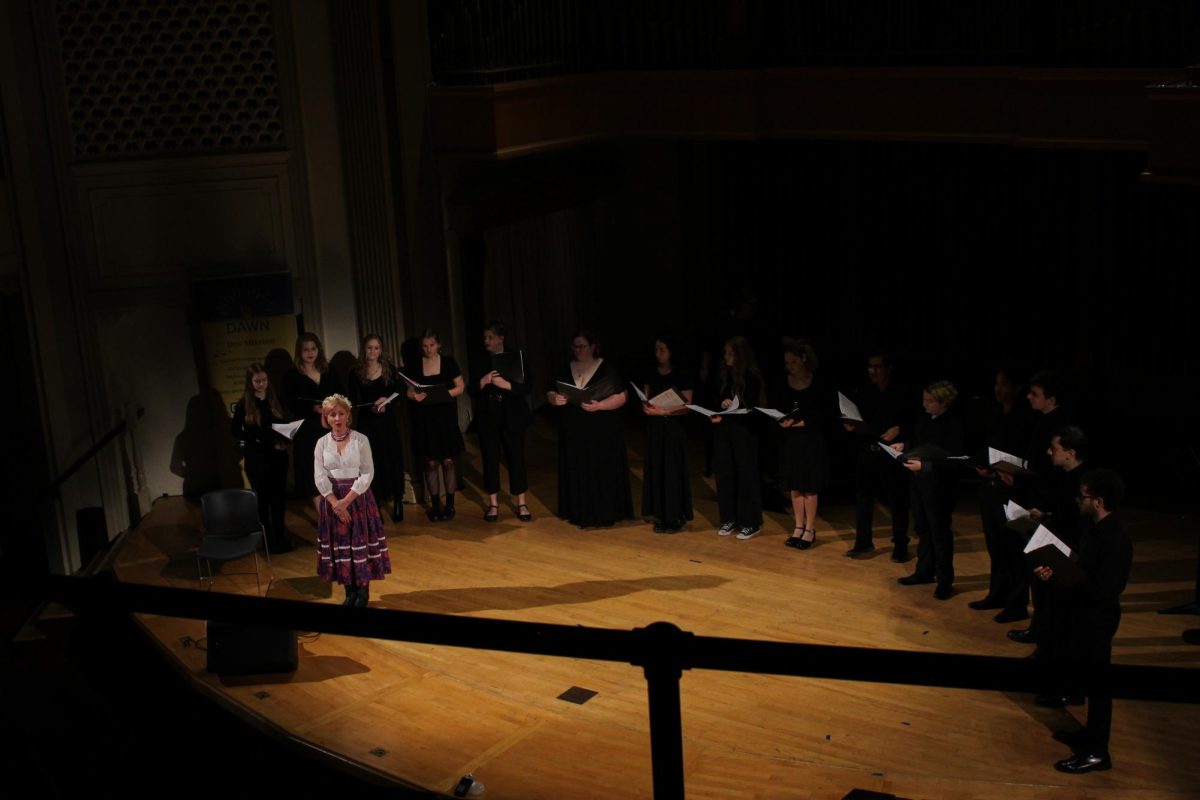Dr. Samuel H. Yamashita presented his research on popular resistance in Japan to WWII in a lecture April 5 in Ice Auditorium.
Sponsored through the Jonas A. “Steine” Jonasson Endowed Lecture, the professor from Pomona College revealed the findings of an extensive study of personal diaries written in Japan during WWII.
He took a wide approach to popular resistance, mentioning not only obvious events, such as attempted coups and assassination plots, but also more unconventional, smaller-scale resistance, such as buying and selling on the black market and secret jazz club meetings.
Yamashita defined resistance as anything against the rules and conventions imposed by the wartime government. His study revealed that the Japanese were not mindless subjects of the Emperor that they had been portrayed as in American propaganda.
Rather, Japanese citizens acted in their own self-interest on a regular basis. One particularly compelling story was of father Tsonejiro Tamura, who refused to see his child off as he left for the military as required by his neighborhood association.
Similarly, a college student conscripted to work in a factory chronicled
absences and tardiness in her journal to intentionally mock her superiors, who later read her entries.
In the military itself, Jehova’s Witnesses refused to bear arms, throwing their weapons down despite the shame, humiliation and punishment that insubordination implied. Other soldiers outright deserted the army: in 1940, there were 1,023 deserters and in 1941, there were 1,085.
In another case, disgruntled cafeteria workers shook their dandruff into their officers’ meals. Overall, Yamashita’s goal was to evaluate the competency of the Japanese public to act in its own interest during WWII.
Despite these widespread findings of small-scale resistance, he found that the majority of the Japanese were prepared to meet their end in a final battle with the Allies. Yamashita pointed out that as the United States entered the Cold War with the USSR, it tried to place all of the burden of WWII on the Emperor and generals in order to justify allying itself with post-occupation Japan.
Yamashita’s findings found that despite the popular resistance highlighted in journals of Japanese citizens, this generalization is incorrect and unjustly absolves a population that must be attributed some share for a war they only partially opposed.
___________________________________________________________________________________________
Nick Hahn/Copy editor
Nick Hahn can be reached at [email protected]






